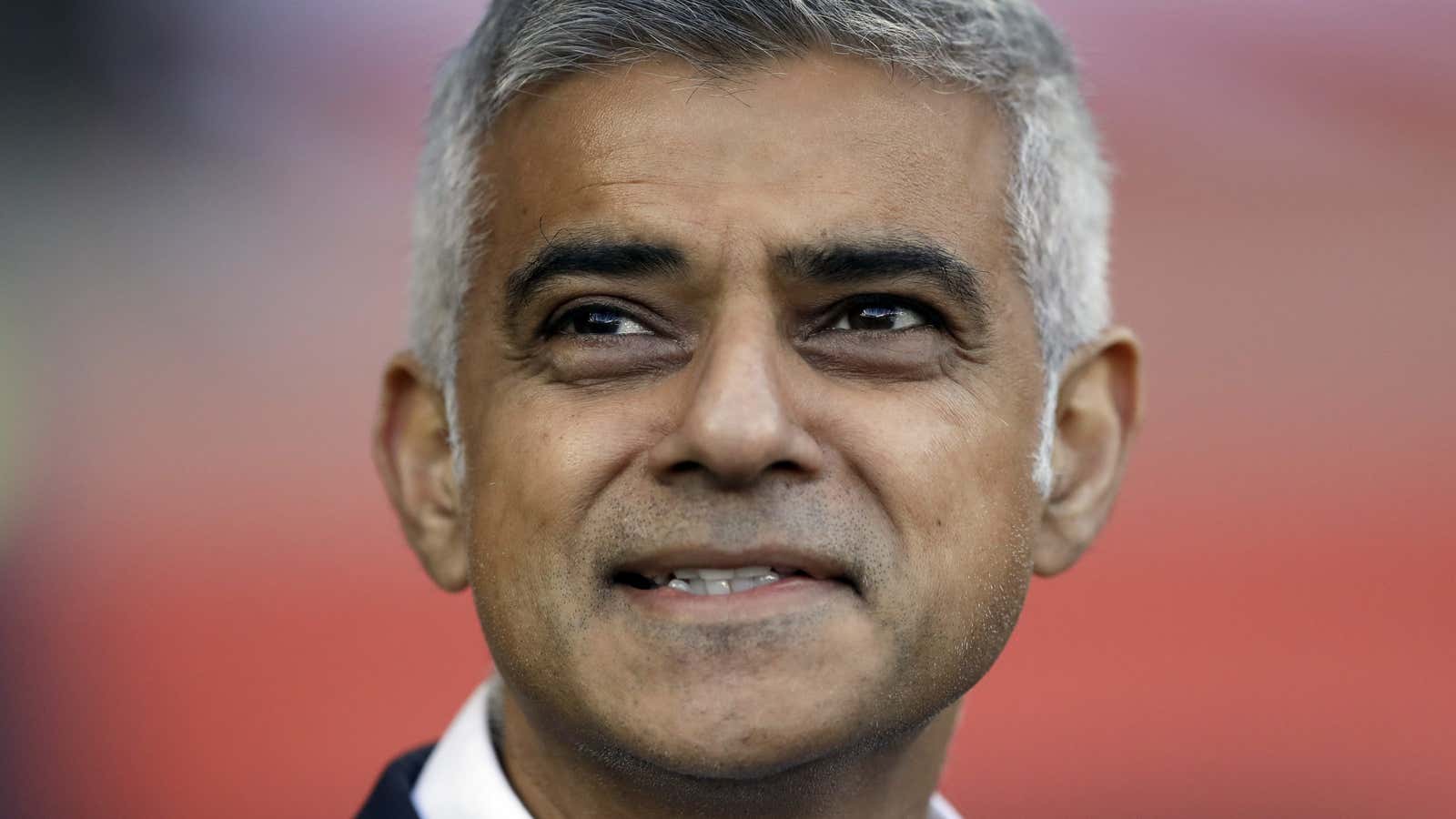London mayor Sadiq Khan says tech companies should show a “stronger duty of care” to live up to their promise of providing places where people can connect, and where information is shared equitably.
According to excerpts of prepared remarks, Khan excoriated platforms such as Facebook and Twitter for fueling societal divisions in today’s (March 12) keynote speech at the South by Southwest conference in Austin, Texas, joining a widening chorus of social media critics.
“There are growing concerns about the way some of the biggest companies on the planet are impacting our lives and the overall wellbeing of our societies,” he said. Khan enumerated the platforms’ detrimental influence, including election meddling, online abuse, fake news, polarization, and enabling terrorist and far-right propaganda.
“All of this is dividing and polarising us, rather than uniting us. I know this all too well from personal experience,” he said. Khan was among the UK politicians who were targeted most by abuse online in the run-up to the general election on June 8, 2017, according to a study by Buzzfeed News and the University of Sheffield. Abuse directed at Khan spiked after Donald Trump criticized the London mayor for his reaction to the London Bridge terrorist attack on June 3 that year.
Khan read some of the racist and abusive tweets directed at him since he became mayor. ”I say kill the mayor of London and you’ll be rid of one Muslim terrorist,” he quoted. “I’d pay for someone to execute Sadiq Kahn.”
“Social media platforms already have a legal obligation to remove content that breaks local laws. But this is not always happening, or happening quickly enough,” Khan said, adding that Facebook, Twitter and other companies “are finally starting to react to the criticisms,” and developing ways to remove abusive and illicit content faster. “But—with the skills and resources these companies have at their disposal—I believe it’s possible to go further and faster.”
If companies don’t exercise “stronger duty of care,” Khan said, more countries will go the way of Germany, which has imposed severe financial sanctions on tech platforms that lag on removing material that violates German law.
Khan also warned against the pitfalls of the sharing economy, which “at its worst, it can drive down pay, workers’ rights and safety standards.” In London, Khan has backed the decision by the city’s transportation regulator not to renew Uber’s license to operate.
The onus is not just on the tech companies, however, Khan said: “It must ultimately fall to government—working with tech businesses and leaders—to ensure that this revolution is not detrimental to our long-term progress.” There has, he said, been a “dereliction of duty” on part of politicians and policymakers to control the growth in technology in a way that is beneficial to everyone.
